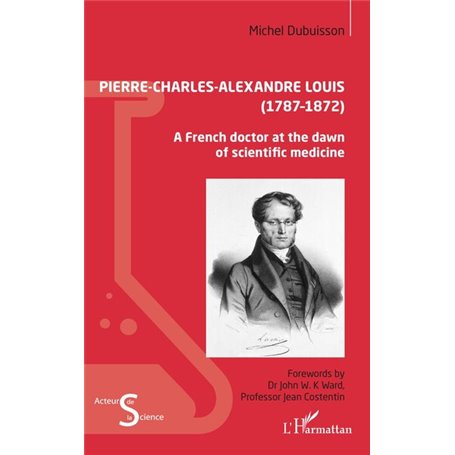Pierre-Charles-Alexandre Louis (1787 - 1872)
Editions L'HARMATTAN
Format BrochéAuteur : Michel Dubuisson
Format BrochéAuteur : Michel Dubuisson
25,30 €
TTC
Livraison sous 20 jours
Notes et avis clients
personne n'a encore posté d'avis
sur cet article

Livraison à Mayotte tout compris

Retours et SAV simplifiés

Garantie Isleden
Description
Few foreign doctors have had as great an influence as Pierre Charles-Alexandre Louis on the development of American scientific medicine. Many of the American doctors who were at the origin of this movement came to Paris and were his students. On their return, through their writings and translations of his works, they passed on what became one of the foundations of American medical science.
Pierre C-A Louis was practicing in Odessa when an epidemic of croup made him aware of the inadequacy of his medical knowledge. He decided to return to Paris to devote himself entirely to anatomical and clinical research.
His work enabled him to isolate this disease, which he named typhoid fever. Following in Laennec's footsteps, he increased our knowledge of phthisis, which later became tuberculosis. Above all, by carrying out one of the first statistical studies in medicine, he dared to question the usefulness and danger of systematic bloodletting, which had been practiced for centuries without any scientific basis.
Through his ideas and writings, he was the precursor of what, two centuries later, would become "evidence-based medicine".
Pierre C-A Louis was practicing in Odessa when an epidemic of croup made him aware of the inadequacy of his medical knowledge. He decided to return to Paris to devote himself entirely to anatomical and clinical research.
His work enabled him to isolate this disease, which he named typhoid fever. Following in Laennec's footsteps, he increased our knowledge of phthisis, which later became tuberculosis. Above all, by carrying out one of the first statistical studies in medicine, he dared to question the usefulness and danger of systematic bloodletting, which had been practiced for centuries without any scientific basis.
Through his ideas and writings, he was the precursor of what, two centuries later, would become "evidence-based medicine".




